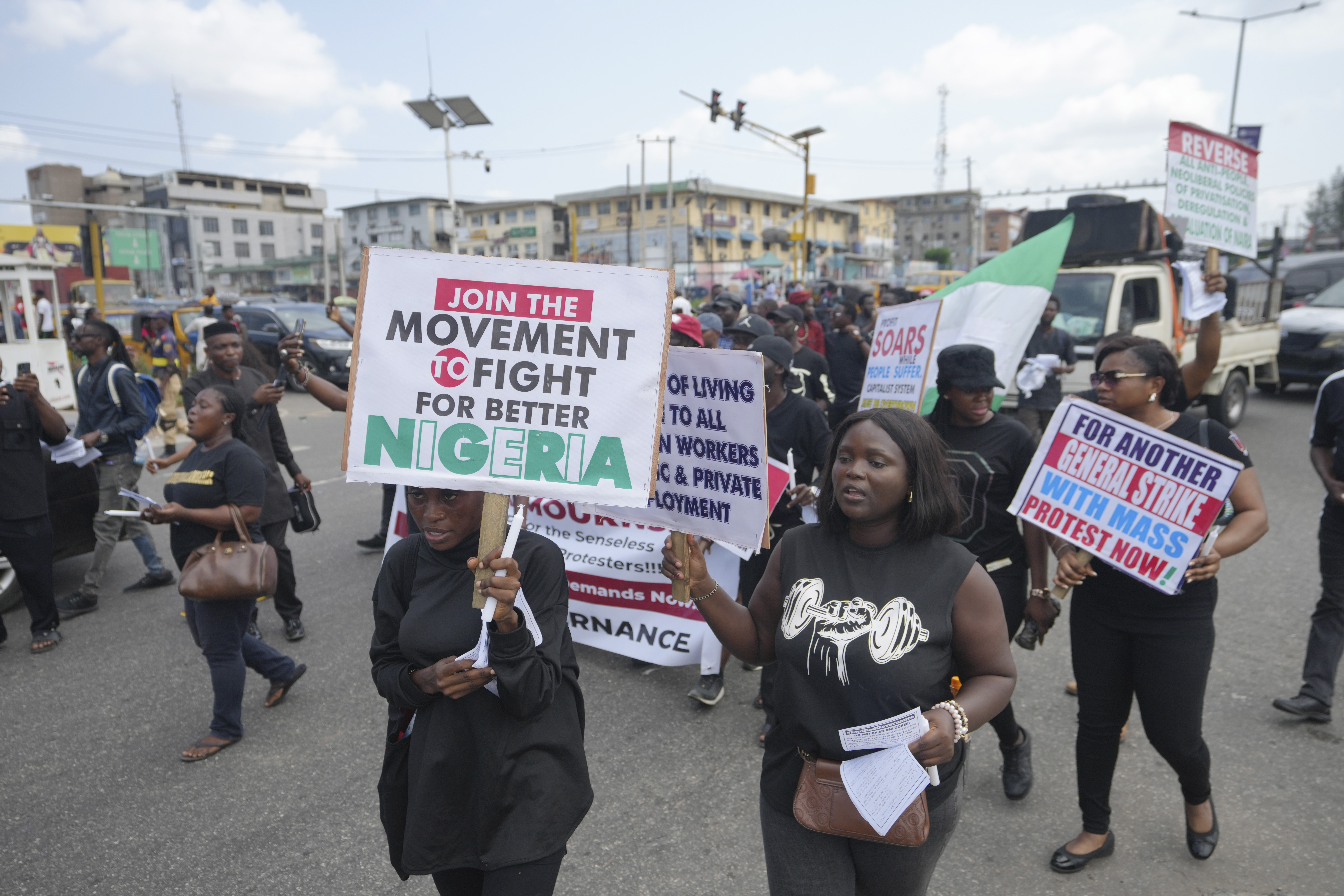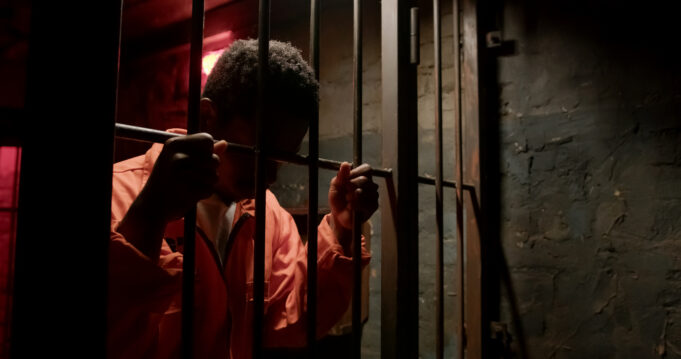“We want freedom for all Believers of Islam now held in federal prisons. We want freedom for all black men and women now under death sentence in innumerable prisons in the North as well as the South. We want every black man and woman to have the freedom to accept or reject being separated from the slave master’ s children and establish a land of their own.
We know that the above plan for the solution of the black and white conflict is the best and only answer to the problem between two people.”—The Muslim Program, “What the Muslims Want,” Point No. 5
Excitement and hope surge among activists and advocates as a bill aimed at removing “involuntary servitude” except as criminal punishment heads to California voters.
Assembly Constitutional Amendment 8 (ACA 8), the End Slavery in California Act, passed both the Senate and Assembly on June 27. If voters approve in the November election, it will remove the slavery exemption from Article I, Section 6 of the state’s Constitution. It will appear on the ballot as “Prop 6.”
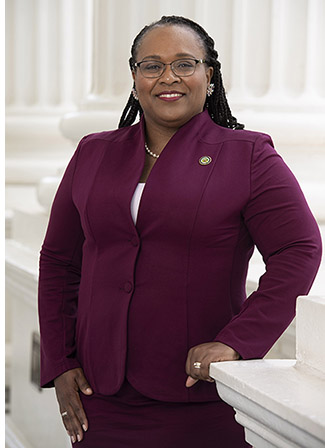
The California Constitution currently states: “Involuntary servitude is illegal except as a punishment for crime whereof the party shall have been duly convicted.”
In the U.S. Constitution, this issue is covered under the 13th Amendment which, according to the NAACP Legal Defense Fund, is recognized by many as the formal abolition of slavery in the United States. “However, it only ended chattel slavery—slavery in which an individual is considered the personal property of another.
While formally eliminating the most recognizable form of slavery, the Thirteenth Amendment also enabled slavery to be transformed into something else that still has harrowing ramifications for Black people today,” noted naacpldf.org.
Section I of the Thirteenth Amendment reads: “Neither slavery nor involuntary servitude, except as a punishment for crime whereof the party shall have been duly convicted, shall exist within the United States, or any place subject to their jurisdiction.”
America’s Prison Industrial Complex has disproportionately impacted Black and poor people.
“Did you know that inmates are contracted out to private industries to do telemarketing, manufacturing, agriculture and bill collection,” the Honorable Minister Louis Farrakhan stated during Part 21 of his 58-week lecture series “The Time and What Must Be Done.”
Citing “How White Folks Got So Rich,” written by The Historical Research Department of the Nation of Islam, which discusses the Prison Industrial Complex (pages 63-67), the Minister exposed the wicked plan of Satan to reinstitute “slavery” and involuntary servitude, especially among Blacks, Latinos and poor Whites.
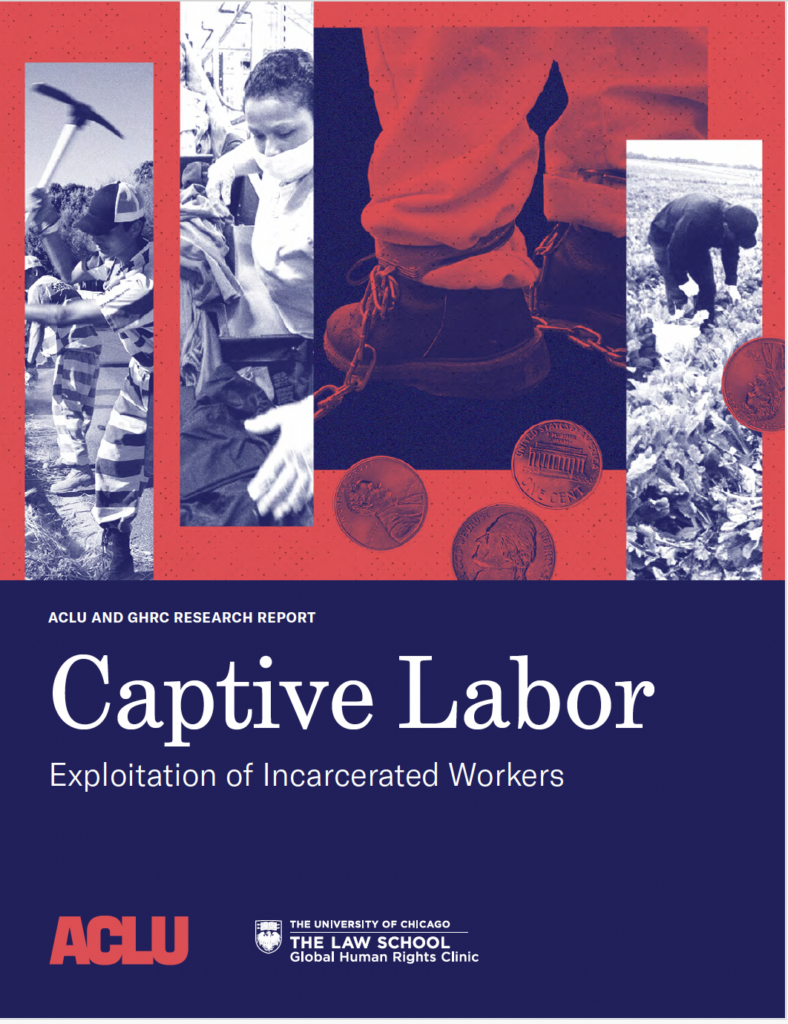
“Under ‘Prison Industry,’ they write: ‘Most Indigenous Black and Indian cultures had no terms or words such as ‘jail’ or ‘prison,’ and crime was virtually unknown. European colonization is notable for both its introduction of new diseases and its imposition of alien systems of government, crime, and punishment,’” stated Minister Farrakhan. Prisons are on the Stock Exchange, the Minister said and continued:
“The corporate owners of a private prison management company proposed to prison officials in 48 states that they take over the prisons—the one thing that they insisted was that the prisons be ‘90 percent filled’ (occupancy rate) for at least 20 years. This is leading us to the question, if a prison has to be ‘90 percent filled’: Who is going to fill it?”
A push to correct historical wrongs
According to ACA 8, the California Constitution has explicitly allowed involuntary servitude as punishment for a crime since 1849, more than 15 years before slavery was abolished in the United States; more than 150 years after slavery was abolished, correctional institutions continue to rely on the involuntary servitude exception in the California Constitution to demand forced labor from incarcerated people; and forced labor has no redeeming qualities and is inconsistent with respect for human dignity.
According to the bill, the Legislature intends that no person in the State of California, regardless of their circumstance of confinement, be subjected to slavery or involuntary servitude in the state and any place subject to its jurisdiction.
The amended Section 6 of Article I reads in part that slavery and involuntary servitude are prohibited; the Department of Corrections and Rehabilitation shall not discipline any incarcerated person for refusing a work assignment;
That nothing in this section shall prohibit the Department of Corrections and Rehabilitation from awarding credits to an incarcerated person who voluntarily accepts a work assignment. Amendments to this section by adding the above shall become operative on Jan. 1, 2025, if the measure passes the November vote.
Legal Services for Prisoners with Children (LSPC) is a group that “organizes communities impacted by the criminal justice system and advocates to release incarcerated people, to restore human and civil rights, and to reunify families and communities,” according to its website.
The group had those impacted by the “involuntary servitude” clause provide videotaped testimonials to share with the public the importance of this issue and the upcoming ballot measure.
“After they had told me my father passed away, I had to go to work,” former inmate Barbara Chavez explained to Legal Services for Prisoners with Children in a videotaped statement on June 16, 2023. “They told me if I didn’t work, I would lose rights, not be able to visit my children, not be able to use the phone, and have to stay in my room, so it’s involuntary servitude.”
Involuntary servitude in the California prison system is an erosion of human rights and a form of exploitation.
One unidentified male in the same video shared his experience as a kitchen worker. During a lockdown, he was made to work overtime, however, though he was only paid pennies on the dollar, he received nothing for the overtime. He filed a grievance and appealed and at every level was denied, he said. “They finally told me that per the Constitution, it was ‘legal’ for them to not pay me for the work that I was ‘required’ to do,” he said.
ACA 8’s passage marks a historic milestone in the ongoing fight for justice and equality, and is more than just a legislative victory, said sponsor Assemblymember Lori D. Wilson in a news release.
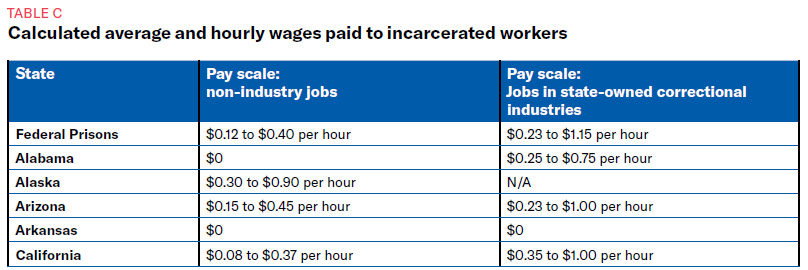
“It is a testament to our collective resolve to correct historical wrongs and ensure that every individual in California is treated with the dignity and respect they deserve,” she said, profoundly thanking sponsors, the ACA 8 Coalition, and advocates, particularly U.S. Rep. Maxine Waters and U.S. Rep. Sydney Kamlager-Dove.
The Golden State is one of the capitals of incarceration in the United States, with the majority of the prison population being Black and Indigenous men and women.
Black people in California are incarcerated at a rate 9.5 times higher than White people, according to Prison Policy Initiative, which produces research to expose the broader harm of mass criminalization.
It ranks fourth behind New Jersey (11.9 times), Wisconsin (11.8 times) and Connecticut (9.9 times), the top three states that lock up a larger proportion of non-Whites than would be expected based on how many live there. It comes as no surprise given the racial bias found in each stage of the system, from policing to pretrial detention, sentencing, and even diversion opportunities.
Last year, voters in Alabama, Tennessee, Oregon, and Vermont voted to remove involuntary servitude from their states’ constitutions. Now, California must catch up, activists urge.
According to a 2022 report by the ACLU, “Captive Labor: Exploitation of Incarcerated Workers,” of the 1.2 million people in the U.S. who are currently incarcerated in state and federal prisons, approximately two-thirds are employed in the prison system.
“These individuals produce nearly $11 billion worth of goods and services each year but earn just 13 to 52 cents per hour on average,” the report states.
According to research by Legal Services for Prisoners with Children, a project of All Of Us Or None, disproportionately incarcerated people of color are legally forced to work for little to no pay, often under hazardous conditions and the threat of additional punitive measures if they refuse.
“We’re going to change the Constitution and even more importantly, we’re going to change the practice,” said Dorsey Nunn, executive director of All Of Us Or None. “Forced or coerced labor without consent is slavery so at a certain point, we’ve ushered in millions of people into slavery, a little bit at a time, and in the meantime, we’re looking away from it.”
More must be done
“It’s a step on the right direction for the incarcerated and those with incarcerated family members, but it’s long overdue,” stated Student Minister Ansar Muhammad of the Nation of Islam Antelope Valley Study Group in California, about the proposed amendment. He was formerly incarcerated and remembers making only 4 cents an hour on a job.
“I had enough to buy some ice cream. I’ll never forget it,” he continued. He also thinks there is some political will capital in terms of politicians working to balance the scales in the state, and passage of ACA 8 is a very small drop in the bucket.
“The ultimate goal is to eradicate the injustice that’s been happening for many years as relates to the whole system,” he stated.
Advocates like Efia Ngwaza, founding director of the Malcolm X Center for Self-Determination in Greenville, S.C., look for a favorable outcome, given the advanced position that California has taken concerning reparations.
According to the Associated Press (AP), California plans to spend up to $12 million on reparations legislation under a budget signed by Democratic Gov. Gavin Newsom, marking a milestone in the state’s efforts to atone for a legacy of racism and discrimination against Black Californians.
The reparations funding in the $297.9 billion budget Newsom signed in late June does not specify what programs the money would go toward.
Ms. Ngwaza attributed part of the progress to the strong pro-prison abolition work across the state.
“In large measure, my thinking is it stands a very good chance of passing,” given some favorable treatment of questions of race in California, she said.
“That’s not to say that California is a bastion of great, liberal anti-racism. It appears, however, that the impacted communities are better organized, and but for situations where money interests feel threatened, like the case of the progressive prosecutor, they don’t feel obliged to invest in countering a referendum,” said Ms. Ngwaza.
She and other activists also believe that if California voters support this amendment in November, it could spark legislative efforts nationwide to eliminate involuntary servitude and reform prison labor practices.
On the federal level, a group of lawmakers in 2023 reintroduced a joint resolution to negate the clause in the 13th Amendment of the Constitution that permits slavery or involuntary servitude “as a punishment for crime.” It was introduced by Sen. Jeff Merkley of Oregon, Sen. Cory Booker of New Jersey and Rep. Nikema Williams of Georgia, all Democrats, reported CNN.
“To amend the Constitution—the resolution would require a two-thirds vote in both houses of Congress before it is sent to the states, where at least 38 legislatures would need to approve it for ratification— and the effort to erase the slavery exception has failed in previous congressional sessions,” the outlet reported.
According to the NAACP Legal Defense Fund’s website, currently, 19 states with constitutions explicitly permit either slavery, involuntary servitude, or both as punishment for a crime.
“We cannot assume that people and state governments are wholly against slavery and involuntary servitude, as states are clearly taking advantage of these constitutional exceptions. Ballot measures, while imperfect, are an important first step toward a full-throated repudiation of the slavery and involuntary servitude that continues in these states,” their website explains.
Abdullah Muhammad is the Nation of Islam Student National Prison Reform Minister. He said he supports the people and their efforts regarding the legislation but thinks the bill is a way of promoting false hope to make Black and Indigenous People feel more comfortable in captivity.
It’s like trying to chop down a mountain with an ice pick because there are so many other hurdles of injustice that must be fought even if the amendment passes, he said.
“Our fight should be for unity, and separation is the best and only solution,” he said.







